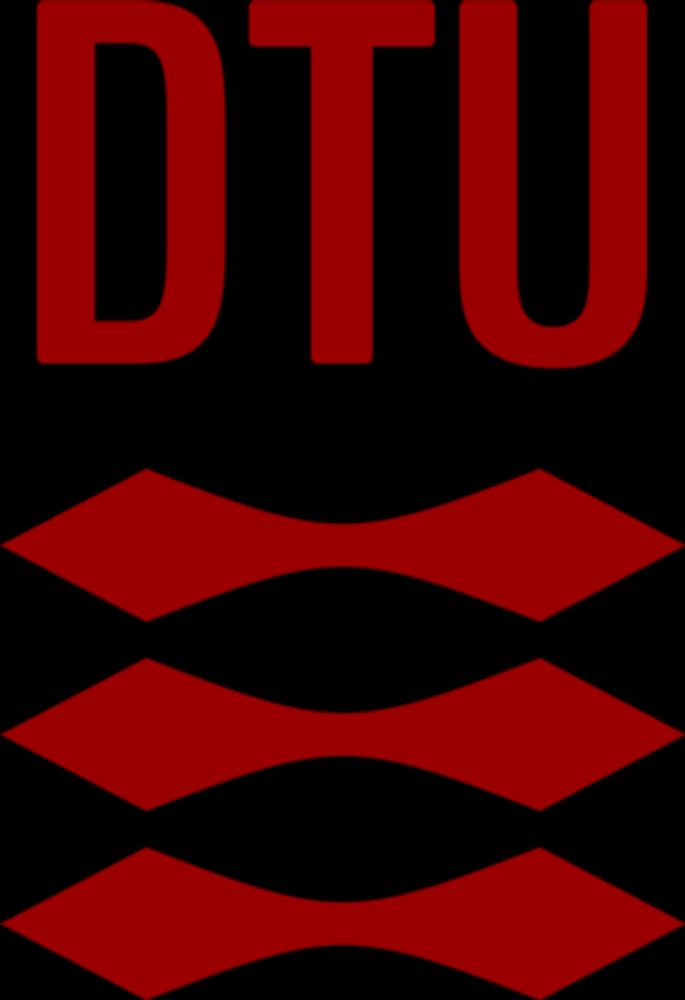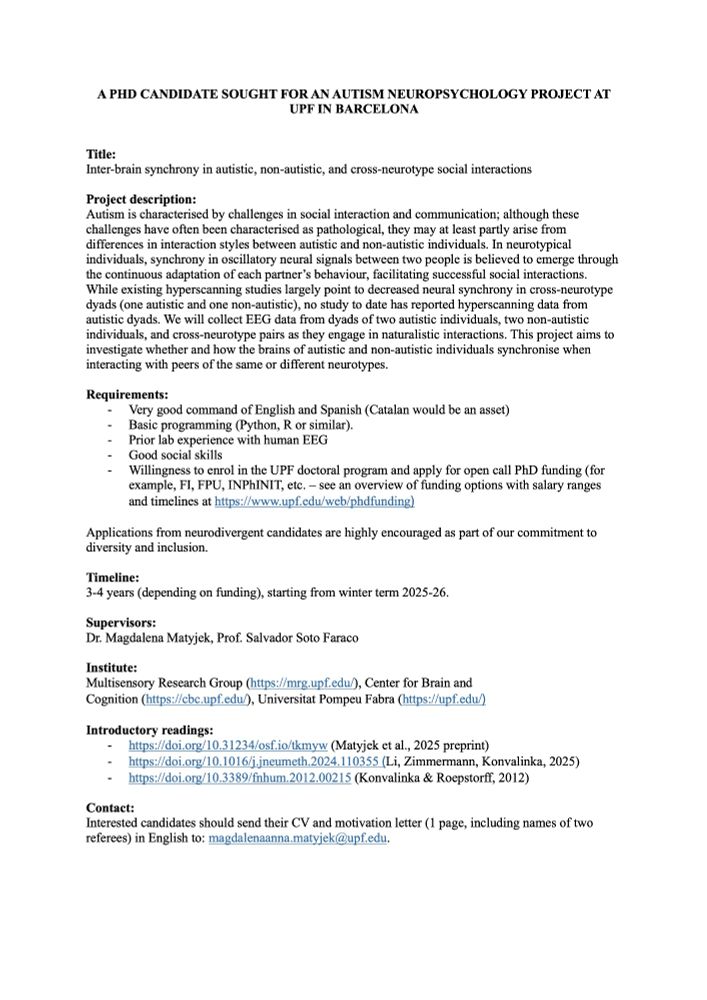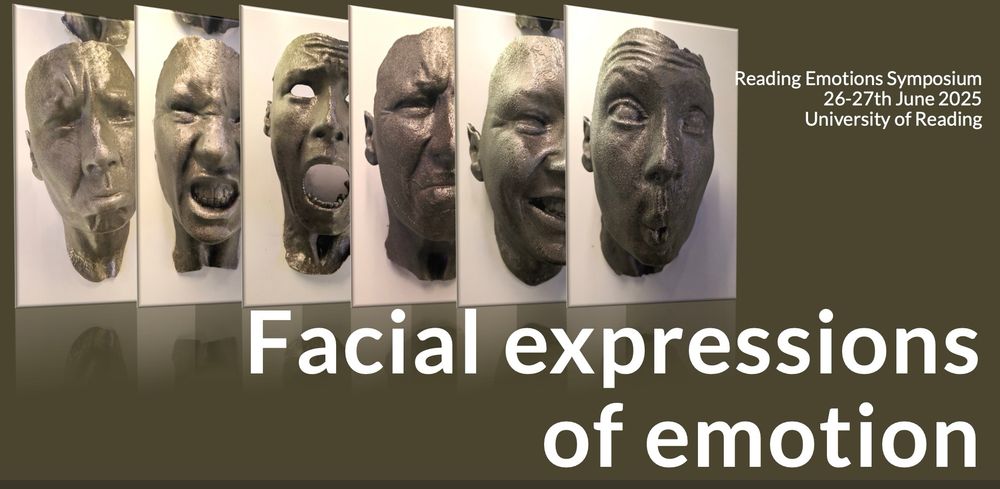Dr Lena Matyjek
@lmatyjek.bsky.social
130 followers
110 following
52 posts
Junior Leader Fellow @upf.edu, Barcelona || former MSCA Fellow || social cognition, autism, the brain🧠 || crocheting 🧶 || PL, EN, ES || she/her || lenamatyjek.com
Posts
Media
Videos
Starter Packs
Reposted by Dr Lena Matyjek
SINe Lab
@sinelabdtu.bsky.social
· Apr 29

Postdoc in Social Dynamics and Complex Systems - DTU Compute
Are you interested in uncovering the mechanisms underlying human social dynamics between dyads, groups, and social networks, during real-time social interaction? We invite applications for an appointm...
efzu.fa.em2.oraclecloud.com
Reposted by Dr Lena Matyjek
Bhisma Chakrabarti
@bhisma.bsky.social
· Jun 26
Reposted by Dr Lena Matyjek
Dr Lena Matyjek
@lmatyjek.bsky.social
· May 10
Dr Lena Matyjek
@lmatyjek.bsky.social
· May 10
Dr Lena Matyjek
@lmatyjek.bsky.social
· May 10
Dr Lena Matyjek
@lmatyjek.bsky.social
· May 9
Dr Lena Matyjek
@lmatyjek.bsky.social
· May 9
Dr Lena Matyjek
@lmatyjek.bsky.social
· May 8
Dr Lena Matyjek
@lmatyjek.bsky.social
· May 8
Dr Lena Matyjek
@lmatyjek.bsky.social
· May 8





